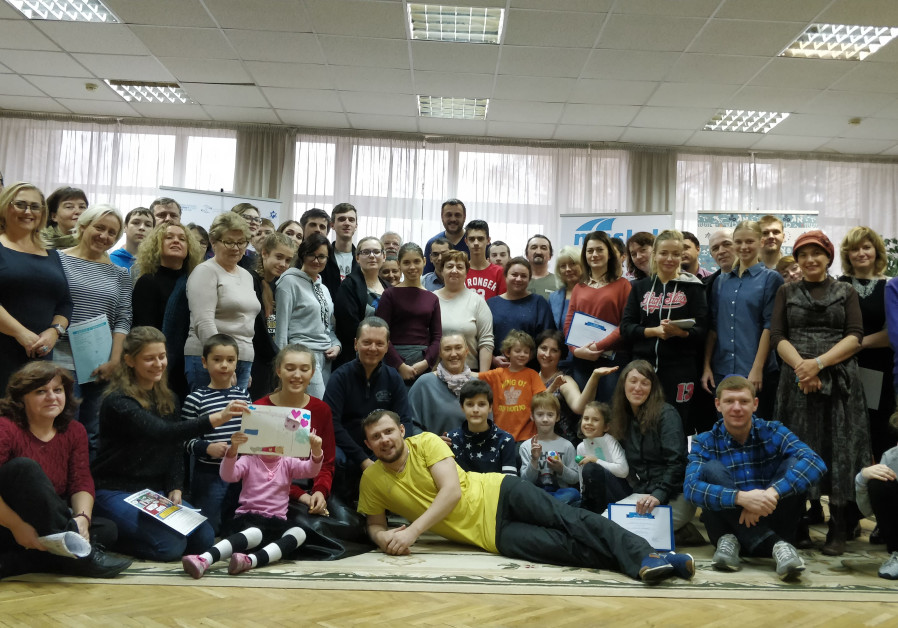or the past year-and-a-half, the Triguboff Institute has provided conversion classes for people making aliya from the former Soviet Union in order to ease the process by helping them get started while they are still in their home countries.
Now, the institute has taken the project, Maslul, a step further by launching online classes in Ukraine and Russia to expand its reach.
Shalom Norman, director of the Triguboff Institute, told The Jerusalem Post on Sunday that while those who live in the big cities can attend the face-to-face classes, it’s a long journey for those who live in the peripheries, a situation that’s exacerbated by circumstances such as harsh weather conditions.
“We are talking about huge distances,” explained Alon Lembrtsky, one of the teachers of the online course. “People can’t always leave the home,” he added, giving the example of mothers who need to take care of their children. “In our day, we don’t need to physically get to a place.”
The conversion course caters only to people who have already been approved as eligible for aliya, and offers those who are not halachically Jewish the option of beginning the long conversion process before they move to Israel.
Norman explained that they can complete two-thirds of the process before they even get to Israel, when they will be saddled with setting up their lives in a new country.
“We take advantage of a time when there is a lot of motivation, adrenaline and goodwill ahead of their aliya,” he said.
The program is conducted in cooperation with the Jewish Agency, the local Jewish community of Moscow, the local Jewish community in Dnepropetrovsek, the Midrasha Zionit in Kiev, and Nativ – The National Center for Identity and Conversion in Israel.
“We give the tools to those who want to continue the process in Israel afterwards,” Lembrtsky told the Post.
He added that the process is also important in preparing the participants for life in Israel and familiarizing them with Jewish traditions and Zionist values.
Many immigrants from the former Soviet Union are halachically Jewish, but due to the lack of religious documentation such as marriage certificates owing to the communists’ suppression of religion, have a hard time proving their Jewish status to rabbinical courts in Israel for the purposes of marriage and other religious requirements. Maslul strives to help the new olim avoid facing personal status issues by helping them to convert.
With the new online component, Maslul hopes to “widen the circle.”
Following a successful pilot program launched six months ago, the online course officially began last week, comprising biweekly conference call-style video classes lasting 1.5 hours each.
One participant of the pilot group, who declined to be named, is already continuing her studies in Tel Aviv and has opened a file in the Rabbinical court.
She comes from Bryansk, Russia, and made aliya with her son. Her father is Jewish, and her interest in that side of her heritage was piqued by a rabbi who served in the Bryansk synagogue. She began to attend his lessons and sought to strengthen her connection to the Jewish faith.
Through the Moscow community, she heard about Maslul at the beginning of 2016 but could not participate in the regular classes due to the distance from Bryansk and Moscow. With the launch of the online pilot program earlier this year, she took the course before moving to Herzliya in August.
She is taking the Maslul classes “not just for the document,” she says, but to fulfill her desire to understand her roots. She sees her and her son’s way of life evolving in the Jewish tradition and religion, and also acknowledges that the conversion will make life easier for her son in the future.
Ironically, the Maslul participant has lived in Israel in the past, having made aliya in 2011, largely for economic reasons.
But, she says, at the time she lacked the opportunity to learn about Jewish religion and tradition because what was provided by the Aliya and Integration Ministry wasn’t deep enough.
She returned to Russia for personal reasons, but says that after meeting the rabbi who drew her toward Judaism in Moscow, she finally understood why she returned to Bryansk – “to get close to the Jewish religion.”
She also observes that while Israeli society is very diverse and the Jewish character of the state makes it’s easier to keep Jewish laws, every time she embraces another aspect of Jewish tradition she finds herself having to defend her every step.
“I get a lot of questions from the people around me,” she says, adding that she is viewed suspiciously by both Orthodox and secular Jews in Israel.
So far, 250 people have taken part in the Maslul conversion classes, 32 of whom are taking or have taken the online version.
source:-jpost.


